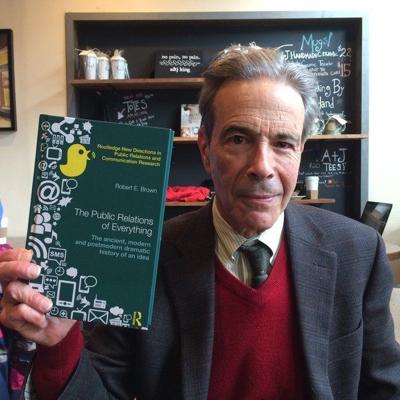Public relations has a bad reputation.
Some would describe the way organizations communicate with the public as spin, or simply lying.
Those who teach public relations have responded to this negative press by introducing ethics into the profession.
They promote a “symmetrical” relationship in which everyone’s interests are served, rather than a one-sided attempt to get people to buy, or believe something.
“The new academic view is that PR should not be persuasion,” said Robert Brown, whose book “The Public Relations of Everything” was recently released. “It should be ‘wonderful for you, wonderful for me.’”
But this approach relies on narrow, quantitative methods that simply won’t cut it in the real world, said Brown, who wants to broaden the definition of public relations.
“The point I am making in this book is that we are all doing this,” he said. “The social digital revolution has made it so clear. If you have a Facebook page, you’re in public relations.”
While social media have created vast outlets for public relations, said Brown, they have only made explicit what has always been the case.
The practice of PR has affinities with means of expression, such as theater, politics and religion, that have always been around.
“I started out with this (by) writing about St. Paul, his version of the Sermon on the Mount — First Corinthians, 13,” Brown said, “which is really about relationships with other people. He doesn’t mention God in this thing. I say he’s a great PR person.”
Brown teaches communications at Salem State University and Harvard Extension School, has written PR for Fortune 500 companies, and is also a published poet.
His book is directed at fellow academics, but its thesis that “everything” people do contains some form of public relations, means that it is addressed to everyone.
Rather than think of persuasion as a dirty word, Brown wants readers to see it is as inseparable from all forms of human communication, including PR.
And rather than seeing public relations as a social science, as his academic colleagues prefer, he prefers to place it among the humanities.
“My book is kind of like an anthropology of PR,” Brown said. “It’s drama, it’s history, it’s an idea.”
Will Broaddus may be contacted at wbroaddus@gloucestertimes.com.













